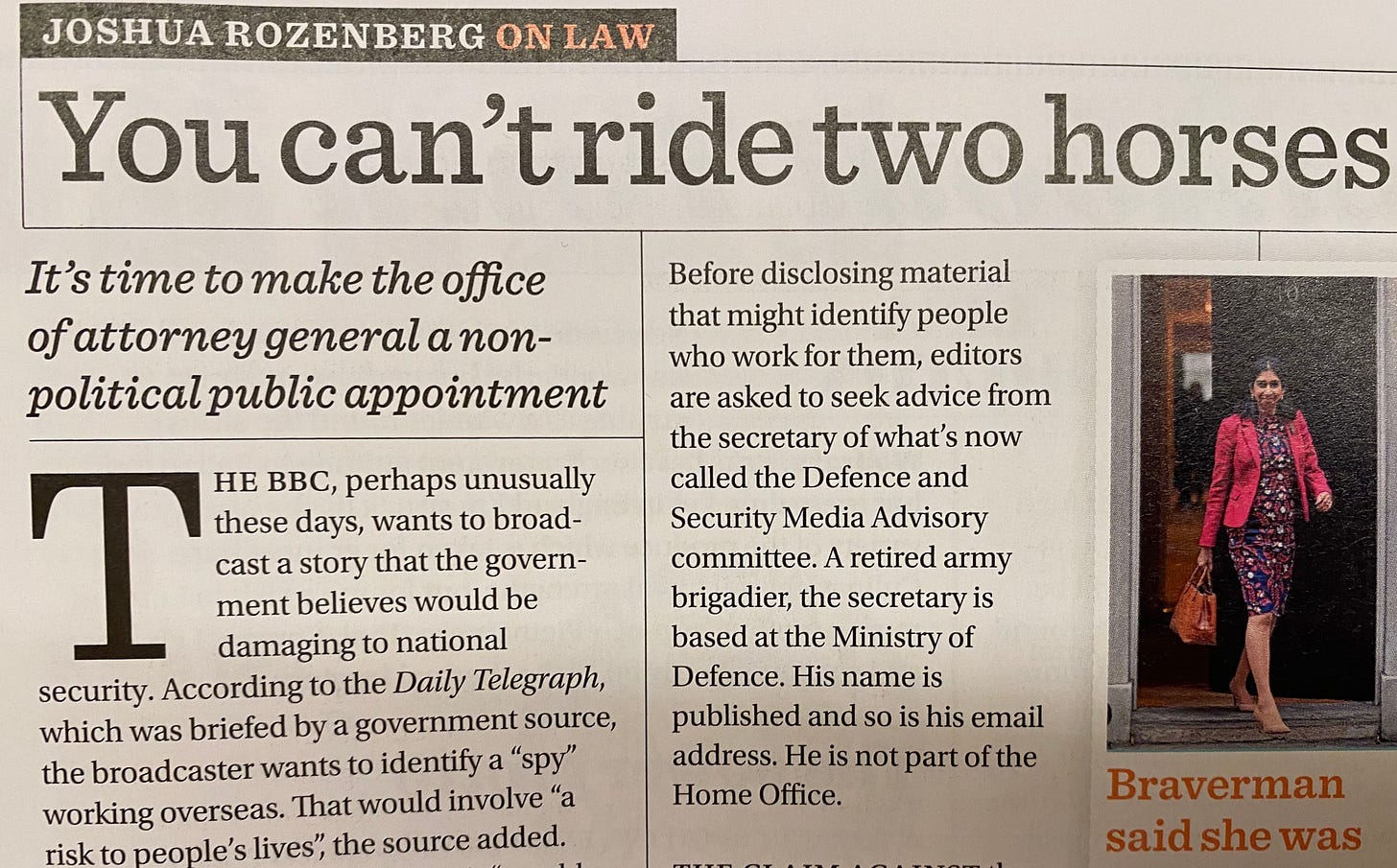A dangerous extremist and misogynist
Story the BBC has been fighting to publish is not about a ‘spy’ after all
In my column for the March edition of The Critic, which was sent to subscribers this week and should be reaching the shops around now, I discuss the politicisation of the attorney general. I can’t quote from the piece before it appears online, some time next month, but the headline and subhead should give you an idea of my thinking:
As you can see, my st…
Keep reading with a 7-day free trial
Subscribe to A Lawyer Writes to keep reading this post and get 7 days of free access to the full post archives.




